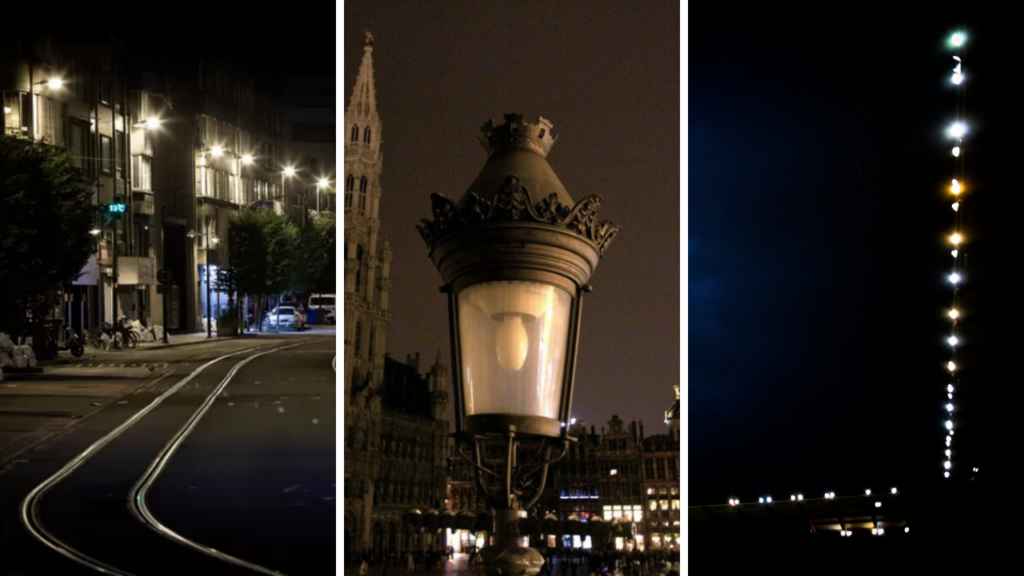It can't have escaped anyone's notice that we're caught in an energy fix right now; whilst the specifics vary depending on the region, nowhere in Europe is sitting comfortably in a position of energy security and fixed affordable prices. Despite EU efforts to agree on unified policies to protect all Member States, the knowledge that we are all feeling the pressure does little to assuage a sense that things are going to get worse and we should all be tightening our belts, both at the household and national level.
With governments across the continent digging deep into public funds to offer some level of support to companies and individuals, they are at the same time becoming ever more vocal about the limits to their spending. Often hesitant to state explicit cuts to public services, they are nonetheless giving increasing airtime to the deficit, which in several (large) EU states has surpassed 100% of GDP. At around 108%, Belgium is one of them.
As a result of the converging budget and energy concerns, Member States are on a mission to track down excesses in expenditure and trim the fat. Yet whilst a national drive for economy will inevitably turn up some easy savings opportunities, key to deciding whether these are of benefit should be the knock-on effects of a cut in funding.
In many cases, a more frugal approach to tightening comes with benefits such as efficiency gains. Yet tightening the purse strings can also become an economic non-sense when factoring in the wider repercussions. This concern has been raised by Brussels mayors who fear that the returns of switching off public lighting will be offset by the incidents this will give rise to.
Though street lighting accounts for 1% of electricity consumption in the Capital Region, the amount of energy that would actually be saved would be only a fraction of this. The City has also decided to turn off lighting for public buildings, mainly as a show of unity with other EU nations.
Yet one can't help wondering whether the symbolism of this is outweighed by consequent losses. Brussels Grand Place is normally an inspiring after-dark location, drawing tourists and trade to its golden facades. For what must be fairly limited energy savings it is now glum and remarkably empty once the lights go out.
Are the city's attempts to save simply a poor return on virtue signalling? Let @Orlando_tbt know.
Belgium in Brief is a free daily roundup of the top stories to get you through your coffee break conversations. To receive it straight to your inbox every day, sign up below:
1. Charleroi Airport security strike continues: Passengers try to force entry
A number of travellers reportedly tried to force into at Charleroi Airport (BSCA) around 05:00 on Tuesday morning as the Security Masters (the contracted security agency) staff are continuing their action. Read more.
2. 'Very dangerous': Safety concerns for Brussels plan to switch off morning street lights
As part of the Brussels Conference of Mayors' decision to reduce electricity bills across the region, street lights will be turned off 30 minutes earlier in the morning, sparking fears it will further endanger vulnerable road users. Read more.
3. Bar goers in Belgium asked to stop stealing beer glasses
The Alken-Maes brewery is calling on bar goers to stop stealing beer glasses after a bar visit, stating that glass production has become very expensive, and beer glasses are gradually becoming scarce. Read more.
4. Young people keep property prices high
The property market in Belgium is holding strong despite the cost of living crisis. After a slight drop in activity, prices are rising once again, mainly driven by young buyers. Read more.
5. 'Major social problem': Survey reveals alarming extent of revenge porn
A survey by the Institute for Equality between Women and Men indicates that one in 100 Belgians had a nude picture of them shared without their consent, De Morgen reports. Read more.
6. 'We want real help, not crumbs': Bakers protest in front of Walloon Government
Around thirty bakers have gathered in protest to throw crumbs at the residence of the Walloon Government, speaking out against the lack of adequate support measures for their sector to combat the current energy crisis. Read more.
7. The rebirth of the Brussels Canal
The Brussels Canal, once the industrial hub of the country, is undergoing a dramatic transformation as the former docks and factories are turned into luxury housing, green businesses sprout up and art takes root. Read more.


